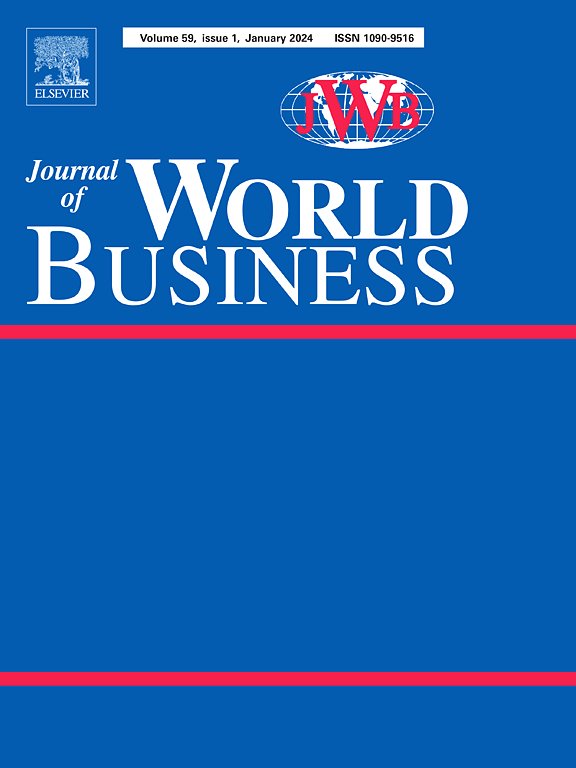Global employees and exogenous shocks: considering positive psychological capital as a personal resource in international human resource management
IF 8.8
1区 管理学
Q1 BUSINESS
引用次数: 5
Abstract
While positive psychological capital (PsyCap) is a significant antecedent of favorable work outcomes, it is unclear whether this is true for global employees during an exogenous shock. Applying conservation of resources theory, we found that, under conditions of crisis-induced role novelty, global employees leveraged PsyCap to follow a resource-gain route to job satisfaction, whereas their ability to mitigate resource loss was limited. We differentiate among global employees, finding that role novelty compensated for lower PsyCap in motivating job engagement for those with higher travel obligations. Our results stress the importance of PsyCap in international human resource management scholarship and practice.
全球员工与外生冲击:积极心理资本作为国际人力资源管理中的个人资源
虽然积极心理资本(PsyCap)是良好工作结果的重要前提,但目前尚不清楚这是否适用于外生冲击中的全球员工。运用资源守恒理论,我们发现,在危机引发的角色新颖性条件下,全球员工利用心理cap遵循资源获得途径获得工作满意度,而他们减轻资源损失的能力有限。我们对全球员工进行了区分,发现对于那些出差较多的员工来说,角色新颖性在激励工作投入方面弥补了心理cap较低的不足。我们的研究结果强调了PsyCap在国际人力资源管理学术和实践中的重要性。
本文章由计算机程序翻译,如有差异,请以英文原文为准。
求助全文
约1分钟内获得全文
求助全文
来源期刊

Journal of World Business
BUSINESS-
CiteScore
16.50
自引率
11.20%
发文量
73
期刊介绍:
The Journal of World Business holds a distinguished position as a leading publication within the realm of International Business. Rooted in a legacy dating back to 1965, when it was established as the Columbia Journal of World Business, JWB is committed to disseminating cutting-edge research that reflects significant advancements in the field. The journal actively seeks submissions that propel new theoretical frameworks and innovative perspectives on International Business phenomena. Aligned with its domain statement, submissions are expected to possess a clear multinational, cross-border, or international comparative focus, while remaining pertinent to the study of management and organizations. JWB particularly encourages submissions that challenge established theories or assumptions, presenting pioneering or counterintuitive findings. With an inclusive approach, the journal welcomes contributions from diverse conceptual and theoretical traditions, encompassing allied social sciences and behavioral sciences. Submissions should either develop new theories or rigorously test existing ones, employing a variety of qualitative, quantitative, or other methodological approaches. While JWB primarily caters to scholars and researchers, it values contributions that explore implications for Multinational Enterprises and their management, as well as ramifications for public policy and the broader societal role of business.
 求助内容:
求助内容: 应助结果提醒方式:
应助结果提醒方式:


